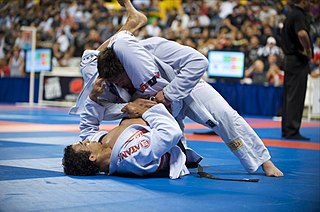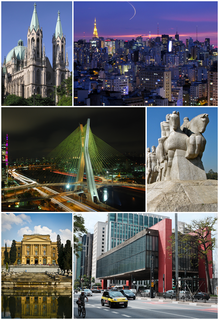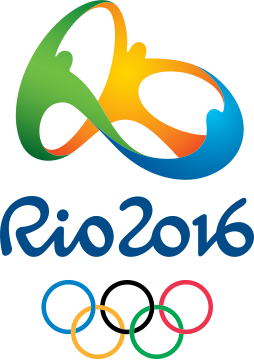
The FIFA World Cup, often simply called the World Cup, is an international association football competition contested by the senior men's national teams of the members of the Fédération Internationale de Football Association (FIFA), the sport's global governing body. The championship has been awarded every four years since the inaugural tournament in 1930, except in 1942 and 1946 when it was not held because of the Second World War. The current champion is France, which won its second title at the 2018 tournament in Russia.

Edson Arantes do Nascimento, known as Pelé, is a Brazilian retired professional footballer who played as a forward. He is regarded by many in the sport, including football writers, players, and fans, as the greatest player of all time. In 1999, he was voted World Player of the Century by the International Federation of Football History & Statistics (IFFHS), and was one of the two joint winners of the FIFA Player of the Century award. That same year, Pelé was elected Athlete of the Century by the International Olympic Committee. According to the IFFHS, Pelé is the most successful domestic league goal-scorer in football history scoring 650 goals in 694 League matches, and in total 1281 goals in 1363 games, which included unofficial friendlies and is a Guinness World Record. During his playing days, Pelé was for a period the best-paid athlete in the world.

Rio de Janeiro, or simply Rio, is anchor to the Rio de Janeiro metropolitan area and the second-most populous municipality in Brazil and the sixth-most populous in the Americas. Rio de Janeiro is the capital of the state of Rio de Janeiro, Brazil's third-most populous state. Part of the city has been designated as a World Heritage Site, named "Rio de Janeiro: Carioca Landscapes between the Mountain and the Sea", by UNESCO on 1 July 2012 as a Cultural Landscape.

South America is a continent in the Western Hemisphere, mostly in the Southern Hemisphere, with a relatively small portion in the Northern Hemisphere. It may also be considered a subcontinent of the Americas, which is how it is viewed in the Spanish and Portuguese-speaking regions of the Americas. The reference to South America instead of other regions has increased in the last decades due to changing geopolitical dynamics.
The Brazil national football team represents Brazil in international men's association football. Brazil is administered by the Brazilian Football Confederation (CBF), the governing body for football in Brazil. They have been a member of FIFA since 1923 and member of CONMEBOL since 1916.

Brazilian jiu-jitsu is a martial art and combat sport system that focuses on grappling with particular emphasis on ground fighting. Brazilian Jiu-Jitsu was developed from Kodokan judo ground fighting (newaza) fundamentals that were taught by a number of Japanese individuals including Takeo Yano, Mitsuyo Maeda, Soshihiro Satake, and Isao Okano. Brazilian Jiu-Jitsu eventually came to be its own defined combat sport through the innovations, practices, and adaptation of judo.

The Federative Republic of Brazil is a union of 27 federated units : 26 states and one federal district. The states are generally based on historical, conventional borders which have developed over time. The Federal District cannot be divided into municipalities, according to the Brazilian Constitution, the Federal District assumes the same constitutional and legal powers, attributions and obligations of the states and municipalities, instead, it is divided by administrative regions.

São Paulo is one of the 26 states of the Federative Republic of Brazil and is named after Saint Paul of Tarsus. As the richest Brazilian state and a major industrial complex, often dubbed the "locomotive of Brazil", the state is responsible for 33.9% of the Brazilian GDP. São Paulo also has the second highest Human Development Index (HDI) and GDP per capita, the fourth lowest infant mortality rate, the third highest life expectancy, and the third lowest rate of illiteracy among the federative units of Brazil, being by far, the safest state in the country. The homicide rate is 3.8 per 100 thousand as of 2018, almost 1/4 of the Brazilian rate. São Paulo alone is richer than Argentina, Uruguay, Paraguay and Bolivia combined. If São Paulo were an independent country, its nominal GDP would be ranked among the top 20 in the world. The economy of São Paulo State is the most developed in Brazil.

The President of Brazil, officially the President of the Federative Republic of Brazil or simply the President of the Republic, is both the head of state and the head of government of Brazil. The president leads the executive branch of the federal government and is the commander-in-chief of the Brazilian Armed Forces. The presidential system was established in 1889, upon the proclamation of the republic in a military coup d'état against Emperor Pedro II. Since then, Brazil has had six constitutions, three dictatorships, and three democratic periods. During the democratic periods, voting has always been compulsory. The Constitution of Brazil, along with several constitutional amendments, establishes the requirements, powers, and responsibilities of the president, their term of office and the method of election.

São Paulo is a municipality in the Southeast Region of Brazil. The metropolis is an alpha global city and the most populous city in Brazil, the Western Hemisphere and the Southern Hemisphere, besides being the largest Portuguese-speaking city in the world. The municipality is also the Earth's 11th largest city proper by population. The city is the capital of the surrounding state of São Paulo, the most populous and wealthiest state in Brazil. It exerts strong international influences in commerce, finance, arts and entertainment. The name of the city honors the Apostle, Saint Paul of Tarsus. The city's metropolitan area, the Greater São Paulo, ranks as the most populous in Brazil and the 12th most populous on Earth. The process of conurbation between the metropolitan areas located around the Greater São Paulo created the São Paulo Macrometropolis, a megalopolis with more than 30 million inhabitants, one of the most populous urban agglomerations in the world.

Ronaldo de Assis Moreira, commonly known as Ronaldinho Gaúcho or simply Ronaldinho, is a Brazilian former professional footballer and ambassador for Barcelona. He played mostly as an attacking midfielder, but was also deployed as a forward or a winger. He played the bulk of his career at European clubs Paris Saint-Germain, Barcelona and A.C. Milan as well as playing for the Brazilian national team. Often considered one of the best players of his generation and regarded by many as one of the greatest of all time, Ronaldinho won two FIFA World Player of the Year awards and a Ballon d'Or. He was renowned for his technical skills and creativity; due to his agility, pace and dribbling ability, as well as his use of tricks, feints, overhead kicks, no-look passes and accuracy from free-kicks.

Romário de Souza Faria, known simply as Romário, is a Brazilian politician who previously achieved worldwide fame as a professional footballer. A prolific striker renowned for his clinical finishing, he is regarded as one of the greatest players of all time. Romário starred for Brazil in their 1994 FIFA World Cup success, receiving the FIFA Golden Ball as player of the tournament. He was named FIFA World Player of the Year the same year. He came fifth in the FIFA Player of the Century internet poll in 1999, was elected to the FIFA World Cup Dream Team in 2002, and was named in the FIFA 100 list of the world's greatest living players in 2004.

The 2014 FIFA World Cup was the 20th FIFA World Cup, the quadrennial world championship for men's national football teams organised by FIFA. It took place in Brazil from 12 June to 13 July 2014, after the country was awarded the hosting rights in 2007. It was the second time that Brazil staged the competition, the first being in 1950, and the fifth time that it was held in South America.

The Brazilian military government was the authoritarian military dictatorship that ruled Brazil from April 1, 1964 to March 15, 1985. It began with the 1964 coup d'état led by the Armed Forces against the administration of President João Goulart—who, having been vice-president, had assumed the office of president upon the resignation of the democratically elected president Jânio Quadros—and ended when José Sarney took office on March 15, 1985 as President. The military revolt was fomented by Magalhães Pinto, Adhemar de Barros, and Carlos Lacerda, governors of Minas Gerais, São Paulo, and Guanabara. The coup was also supported by the State Department of the United States through its embassy.

The 2016 Summer Olympics, officially known as the Games of the XXXI Olympiad and commonly known as Rio 2016, was an international multi-sport event that was held from 5 to 21 August 2016 in Rio de Janeiro, Brazil, with preliminary events in some sports beginning on 3 August. These were the first Olympic Games ever to be held in South America and the second to be held in a developing country, after the 1968 games in Mexico City.
The Brazil women's national football team played their first game on 22 July 1986 against the United States, losing 2–1.

Brazilians are citizens of Brazil. A Brazilian can also be a person born abroad to a Brazilian parent or legal guardian as well as a persons who acquired Brazilian citizenship. Brazil is a multiethnic society, which means that it is home to people of many different ethnic origins. As a result, majority of Brazilians do not equate their nationality with their ethnicity, usually embracing and espousing both simultaneously.

Neymar da Silva Santos Júnior, commonly known as Neymar Jr. or simply Neymar, is a Brazilian professional footballer who plays as a forward for French club Paris Saint-Germain and the Brazil national team. Considered one of the best players in the world, he is known for his dribbling, finishing, skill, pace, and ability to play with both feet.

Jair Messias Bolsonaro is a Brazilian politician and retired military officer, serving as the 38th President of Brazil since 1 January 2019. He served in the country's Chamber of Deputies, representing the state of Rio de Janeiro, between 1991 and 2018. He currently is a member of the conservative Social Liberal Party.






















